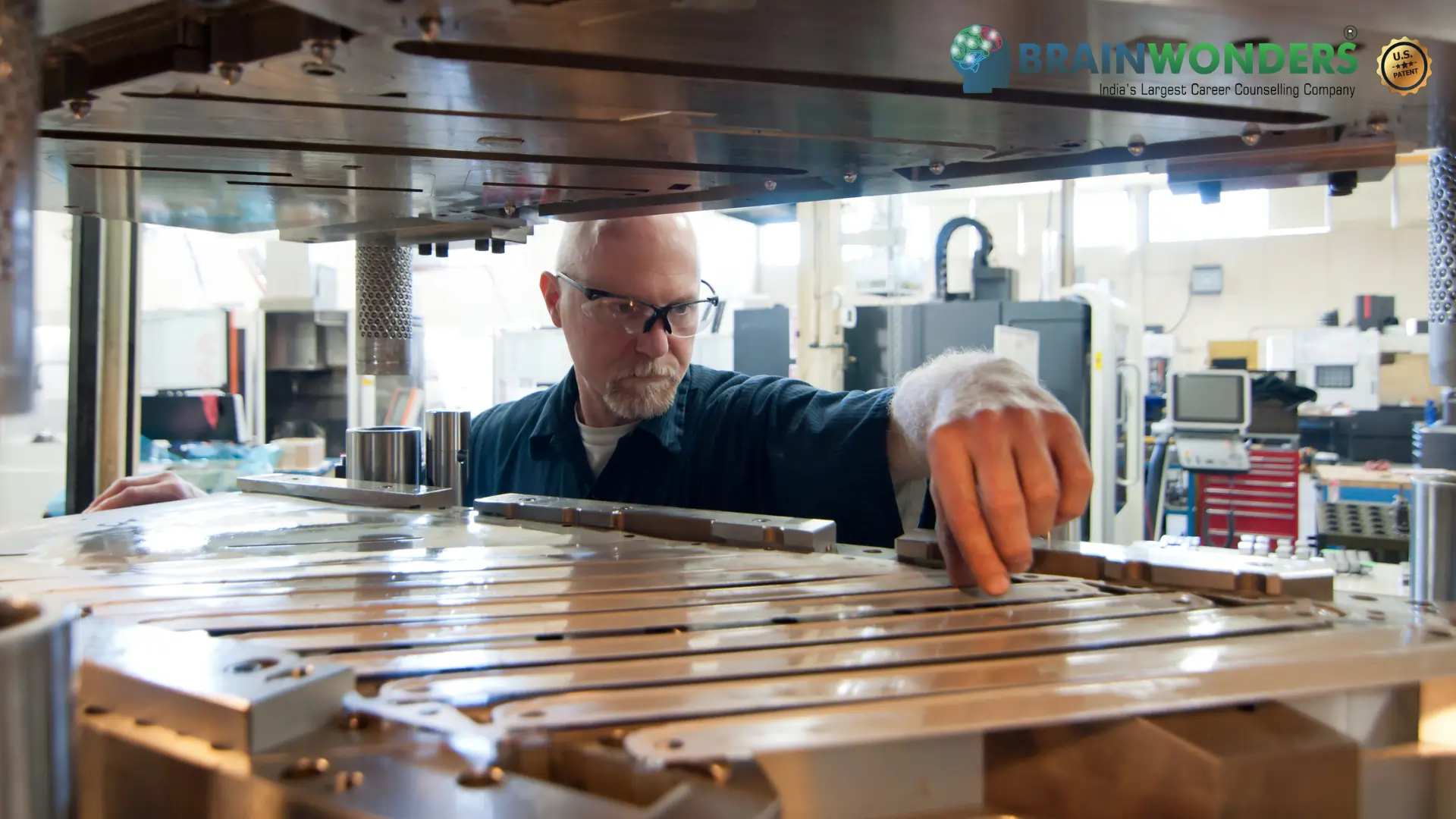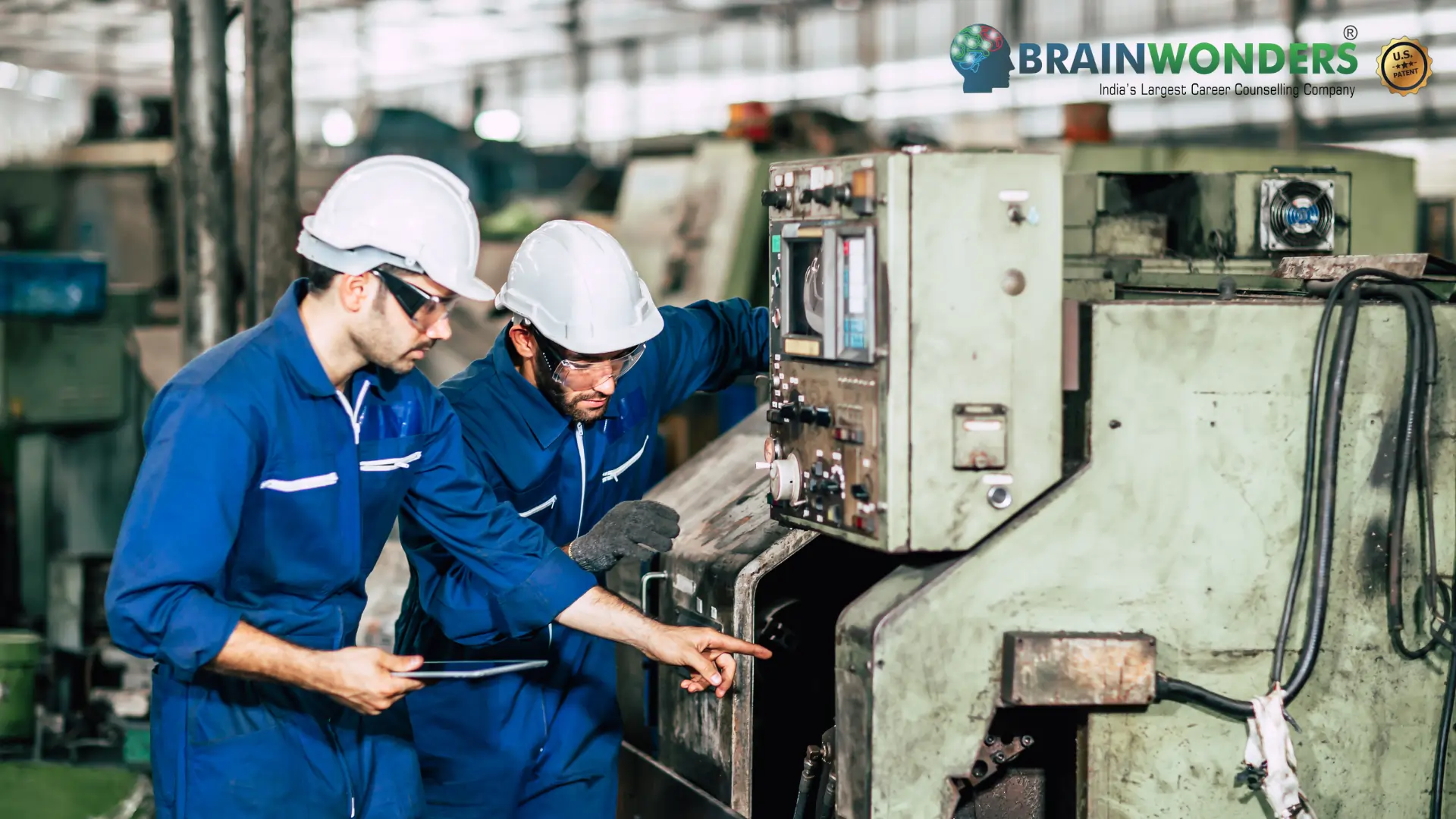How to become a Tool & Die Maker
Overview, Courses, Exam, Colleges, Pathways, Salary

Overview
Who is Tool & Die Maker ?
A jig and fixture maker belongs to the tool and dies maker/ toolmaker group. To manufacture these devices, a jig and fixture builder must be able to operate a variety of machinery, including welding abilities and, in certain situations, knowledge of woodworking equipment, as well as tool room machining skills. In the construction of the gadgets, they are frequently instructed by an engineer. Plastics, in addition to wood and metal, require a broad understanding of numerous materials. They can also invent, design, and construct without the need for engineering plans or blueprints. Jig/fixture makers receive hands-on expertise while monitoring and adjusting the production process, which is regularly refined and evaluated with/by engineers.
Typical day at work
What does Tool & Die Maker do?
- The role of a Tool & Die Maker involves designing, manufacturing, and maintaining precision tools, dies, and moulds used in manufacturing processes.
- They interpret engineering drawings, create detailed plans, and use various tools and machines to shape and fabricate metal components.
- Tool & Die Makers operate equipment such as lathes, milling machines, grinders, and computer-controlled machinery.
- They perform precise measurements, ensure the accuracy and quality of finished products, and make adjustments as necessary.
- Tool & Die Makers are crucial in producing parts for various industries, including automotive, aerospace, and consumer goods manufacturing.
Abilities and Aptitude needed
What are the skills, abilities & aptitude needed to become Tool & Die Maker?
Operation control for equipment, system management, and tool and component monitoring are needed skills for tool and die, makers. They also demand problem-solving skills and attention to detail. They must have a thorough understanding of machines and tools, including their designs, applications, repair, and maintenance. A thorough understanding of arithmetic, algebra, geometry, calculus, statistics and their applications is also required.
Pathways
How to become an Tool & Die Maker?
Entrance Exam
Entrance Exam for Tool & Die Maker ?
Courses
Which course I can pursue?
Best Colleges
Which are the best colleges to attend to become an Tool & Die Maker?
Industries
Which Industries are open for Tool & Die Maker?
- Tool & Die Makers can find employment opportunities in various industries that rely on precision manufacturing and engineering.
- Some industries requiring their expertise include automotive manufacturing, aerospace, electronics, appliance manufacturing, plastics, and metal fabrication.
- Tool & Die Makers are essential in these industries for designing and manufacturing moulds, dies, jigs, and fixtures used to produce parts and components.
- They may work for manufacturing companies, tool and die shops, or contract manufacturing firms.
- The demand for Tool & Die Makers extends across various sectors involving precision manufacturing.
internship
Are there internships available for Tool & Die Maker?
Internship opportunities for Tool & Die Makers are available in industries such as automotive manufacturing, aerospace, metal fabrication, and plastics. Interns may work alongside experienced Tool & Die Makers, assisting in creating prototypes, operating machinery, performing measurements, and troubleshooting.
Career outlook
What does the future look like for Tool & Die Maker?
Tool and die manufacturers might operate in toolrooms or on the manufacturing floor. The majority of tool and die manufacturers are employed by MNCs that manufacture tools and machines. They can also be recruited by the government to build infrastructure. During regular business hours, the majority of tool and die manufacturers work full time. Overtime is, however, frequent. Evening and weekend work is typical since many manufacturers operate their machines for lengthy periods.



